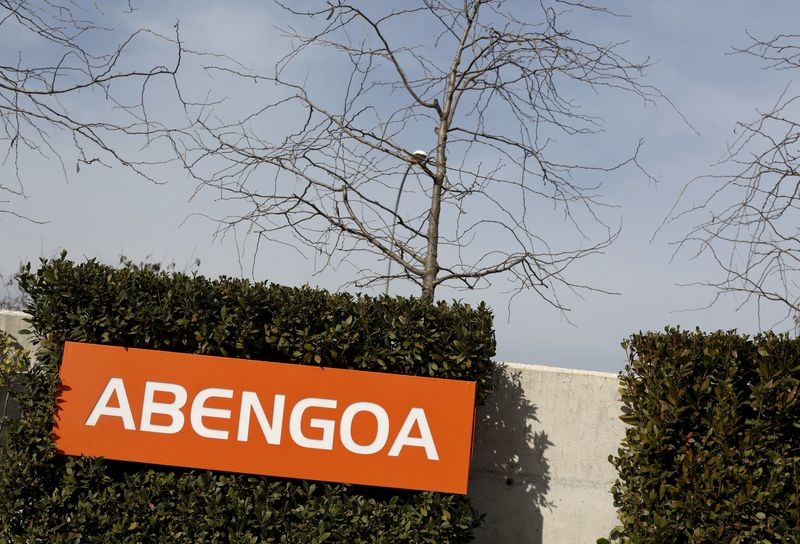Spain’s Abengoa wins dismissal of U.S. shareholder lawsuit alleging fraud
2022.08.30 23:45

FILE PHOTO: An Abengoa logo is seen at Campus Palmas Altas, Abengoa’s headquarters in the Andalusian capital of Seville, southern Spain February 2, 2016. Picture taken February 2, 2016. REUTERS/Marcelo del Pozo
By Jonathan Stempel
NEW YORK (Reuters) – A U.S. judge on Tuesday dismissed a lawsuit by Abengoa SA shareholders accusing the Spanish engineering and energy company of conducting a massive accounting fraud between 2013 and 2015 that masked a liquidity crisis and culminated in bankruptcy.
U.S. District Judge Edgardo Ramos in Manhattan rejected claims, including from a whistleblower, that Abengoa routinely inflated profit margins and prematurely recognized revenue from contracts in order to boost executive bonuses.
In a 56-page decision, Ramos said Abengoa did not mislead shareholders by publicly touting its “strict financial discipline,” and said receipt of performance-based bonuses did not by itself establish a motive to defraud.
He also said shareholders waited too long sue Bank of America (NYSE:BAC), Canaccord Genuity, HSBC and Societe Generale (OTC:SCGLY), which helped Abengoa sell 517.5 million euros ($518 million) of American depositary shares in October 2013.
The lawsuit covered investors who bought Abengoa’s ADS between Oct. 17, 2013, and Aug. 2, 2015, the day before Abengoa surprised the market by seeking a capital increase. Its market value fell an estimated $8.1 billion over the next two days.
Nicholas Porritt, a lawyer for the investors, said they are “obviously disappointed” and are reviewing the decision to determine their next steps.
Abengoa and its lawyers did not immediately respond to requests for comment.
The company sought protection under Spanish insolvency law in November 2015, and filed for protection under Chapter 15 of the U.S. Bankruptcy Code four months later.
Both proceedings ended in 2019.
Abengoa, excluding its main unit, renewed voluntary bankruptcy proceedings in February 2021, after creditors refused to extend talks on a restructuring agreement.
The Seville-based company had borrowed heavily for more than a decade to expand aggressively into renewable energy.
In June 2022, Abengoa began insolvency proceedings for the main unit, after Spain rejected an aid package that would have allowed the unit more time to evaluate a takeover bid from private equity firm TerraMar Capital LLC.
The case is Francisco v Abengoa SA, U.S. District Court, Southern District of New York, No. 15-06279.








